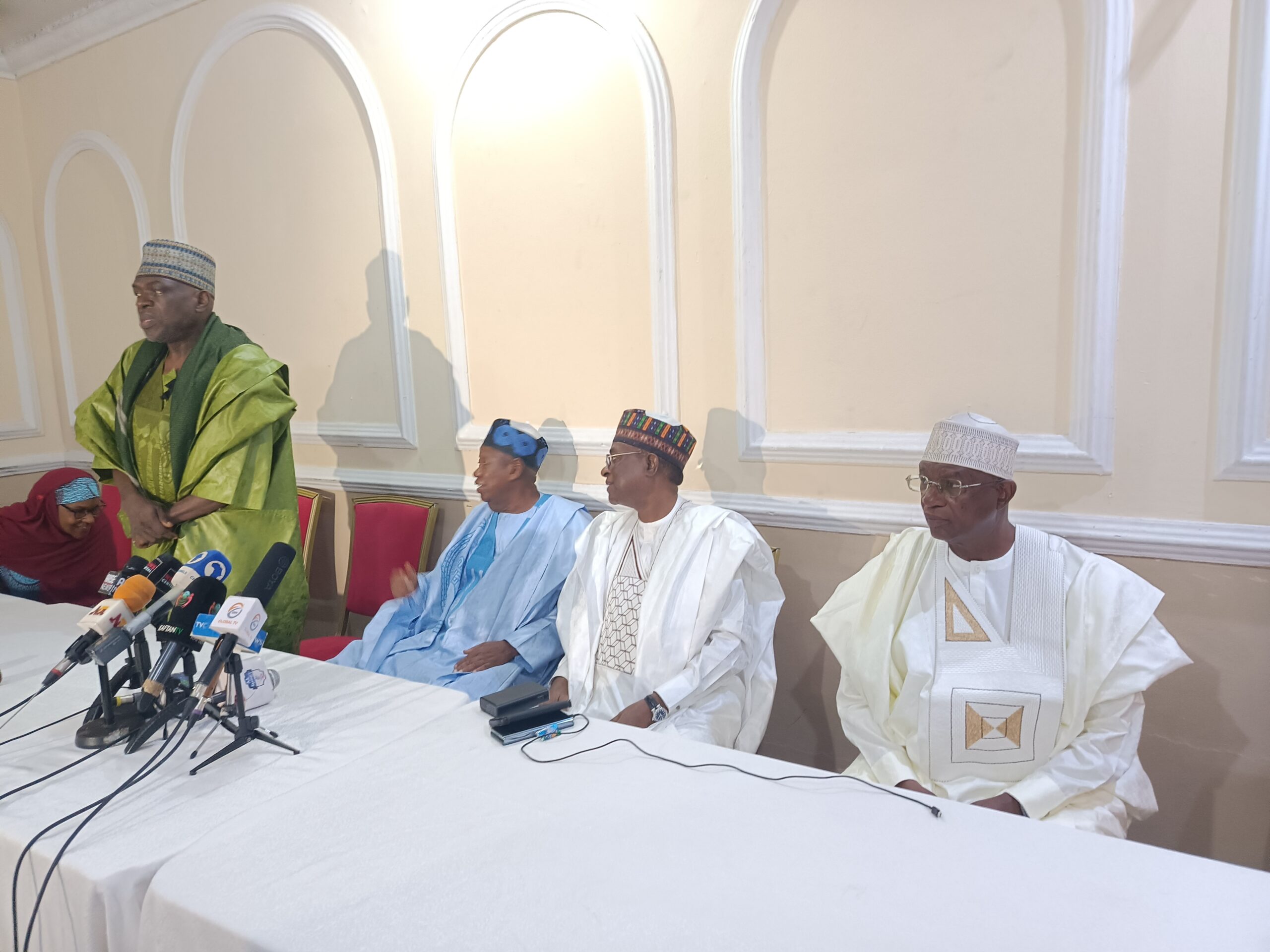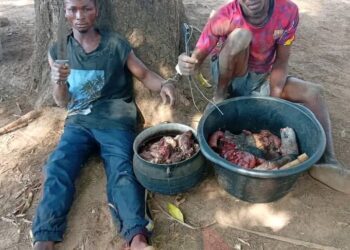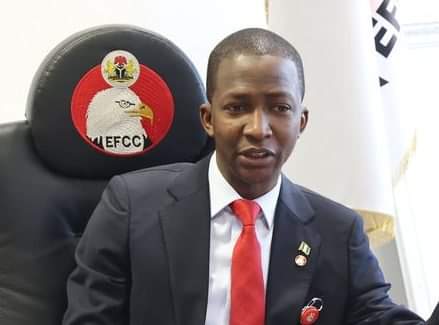A coalition of 17 Fulani groups, led by prominent figures like Abdullahi Ganduje and Isa Yuguda, is determined to address insecurity caused by some herdsmen.
With a focus on changing the mindset of Fulanis and promoting modern pastoralism, the coalition aims to create a peaceful environment for livestock production and improve the lives of Fulani communities.
In a significant development, 17 Fulani group leaders have come together to form a coalition with a shared objective of ending the insecurity perpetuated by certain members of their community. Notably, the coalition includes former Governor of Kano State, Abdullahi Ganduje, and former Governor of Bauchi State, Isa Yuguda.
During their inaugural meeting, these prominent leaders acknowledged the existence of a small faction within the Fulani community that has been involved in criminal activities, such as kidnapping, armed robbery, and militia operations.
However, they emphasized that these individuals are now undergoing a transformative process and are committed to peace and stability.
The Transformation Of Killer Herdsmen: A Change In Narrative
Ganduje, expressing the coalition’s collective sentiment, stressed the need for a change in narrative regarding Fulani herdsmen.
He noted that the concept of nomadic education had failed due to misunderstandings, urging the community to alter their mindset to capitalize on the government’s renewed efforts and support.
According to Ganduje, the once notorious herdsmen are now born again, having realized the importance of embracing peace and stability.
Emphasizing the significance of providing an enabling environment, Ganduje appealed to the government to facilitate various aspects of Fulani life, including settlement, housemanship, livestock laboratories, markets, and security measures.
He highlighted the necessity of education for the children of Fulani herdsmen and affirmed the coalition’s commitment to engaging citizens in efforts to discourage banditry and other harmful practices. Ganduje commended the efforts of the security agencies in ensuring the nation’s safety and reiterated the coalition’s dedication to fostering peace and stability in Nigeria.
Reforming Livestock Production: The Fulani Perspective
Former Governor of Bauchi State, Isa Yuguda, shed light on the challenges faced by the Fulani community, asserting that they are the most profiled ethnic group in Nigeria, with an estimated population of 60 million people.
Yuguda expressed concern over the survival of the Fulani people in Nigeria, urging prompt action to address the prevailing animosity towards them.
He revealed the presence of various groups, including Fulani militias, within the bush, most of whom had experienced personal tragedies involving the loss of family members.
“Trapped in a cycle of violence, some of these individuals have resorted to using weapons for criminal activities,” Yuguda said while attributing it to the lack of intervention in the takeover of cattle routes and grazing areas to the government’s inaction, further exacerbating the challenges faced by the Fulani community.
He emphasized that his personal interactions with Fulani ethnic militias in Zamfara State revealed their deep-rooted grievances stemming from conflicts between Hausa and Fulani communities.
“Notably, these militias resort to violent acts, such as raiding houses and kidnapping, in response to similar incidents targeting Fulani individuals,” Yuguda said.
Highlighting the urgent need for unity among the Fulani leaders and underlined the staggering loss of over 3 million cows during the crisis, Baba Ngelzarma, the National President of Miyetti Allah Cattle Breeders Association (MACBAN), echoed the sentiments of the coalition, emphasizing their determined efforts to unite Fulani leaders and resolve the prevailing insecurity.
Ngelzarma revealed the staggering loss of over 3 million cows during the crisis, emphasizing the dire need for immediate action.
He reiterated the coalition’s commitment to restoring peace and stability to their communities.
Dr Ramatu Abarshi, a Fulani kidnap victim, shared her perspective on the issue, stating that the problem faced by the Fulani community cannot be resolved by a single individual.
Despite her traumatic experience, she expressed forgiveness towards her captors and called upon all Fulanis to support the renewed hope fostered by the Bola Ahmed Tinubu administration.
Dr Abarshi highlighted the gravity of witnessing young Fulani individuals, armed with guns, expressing pleasure in taking lives.
Nevertheless, she affirmed her resolve to move forward and focus on positive changes.
Paving the Way for Peaceful Livestock Production
The formation of the Fulani Leaders Coalition marks a significant step towards addressing the insecurity perpetuated by a small faction within the Fulani community.
By advocating for a change in mindset and embracing modern pastoralism, the coalition aims to create a conducive environment for livestock production.
Their collective efforts to engage citizens, discourage criminal activities, and foster unity among Fulani leaders offer hope for a peaceful and stable Nigeria.
It is crucial for all stakeholders to support these initiatives and work towards resolving the challenges faced by the Fulani community, ensuring a brighter future for all Nigerians.
No schema found.










